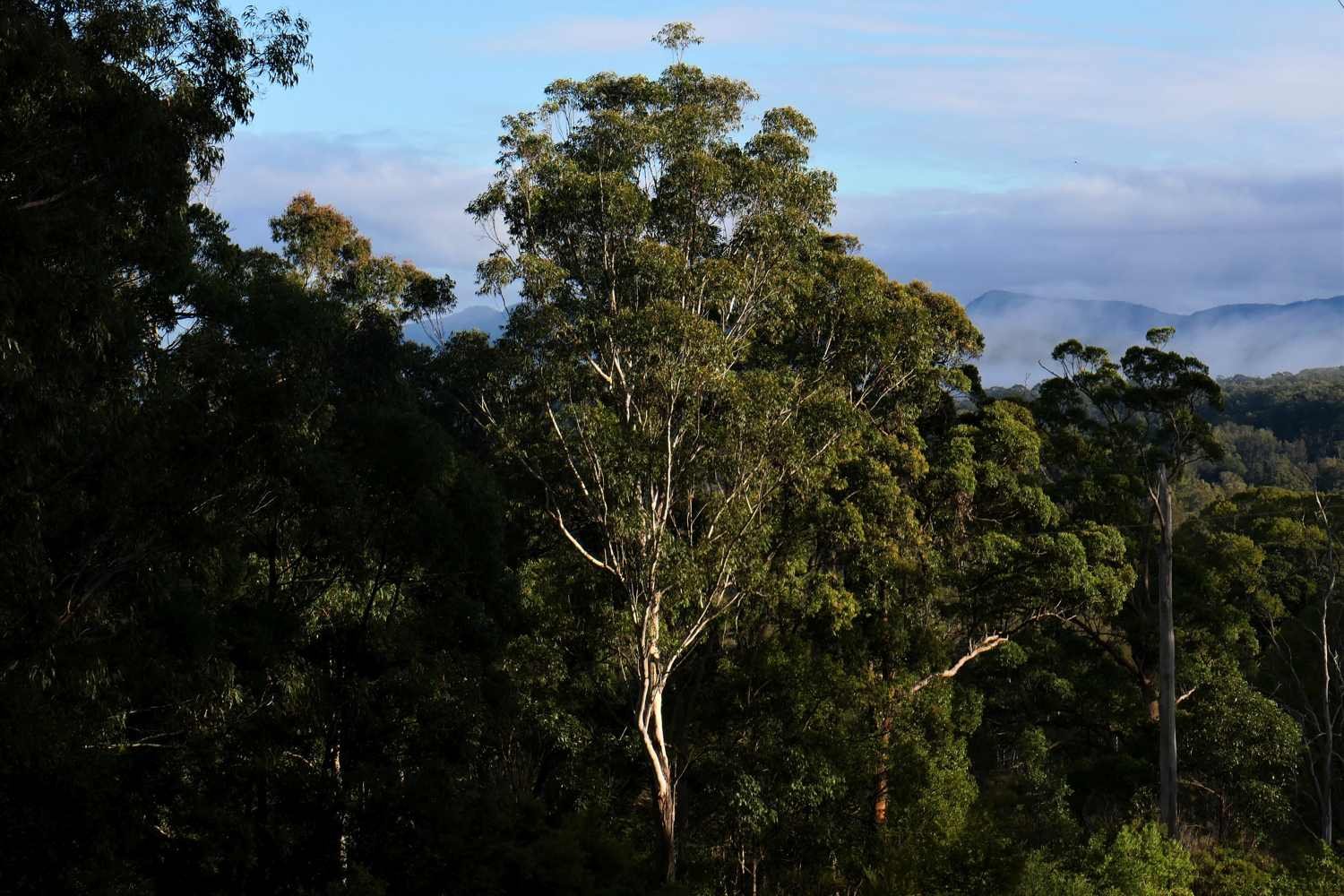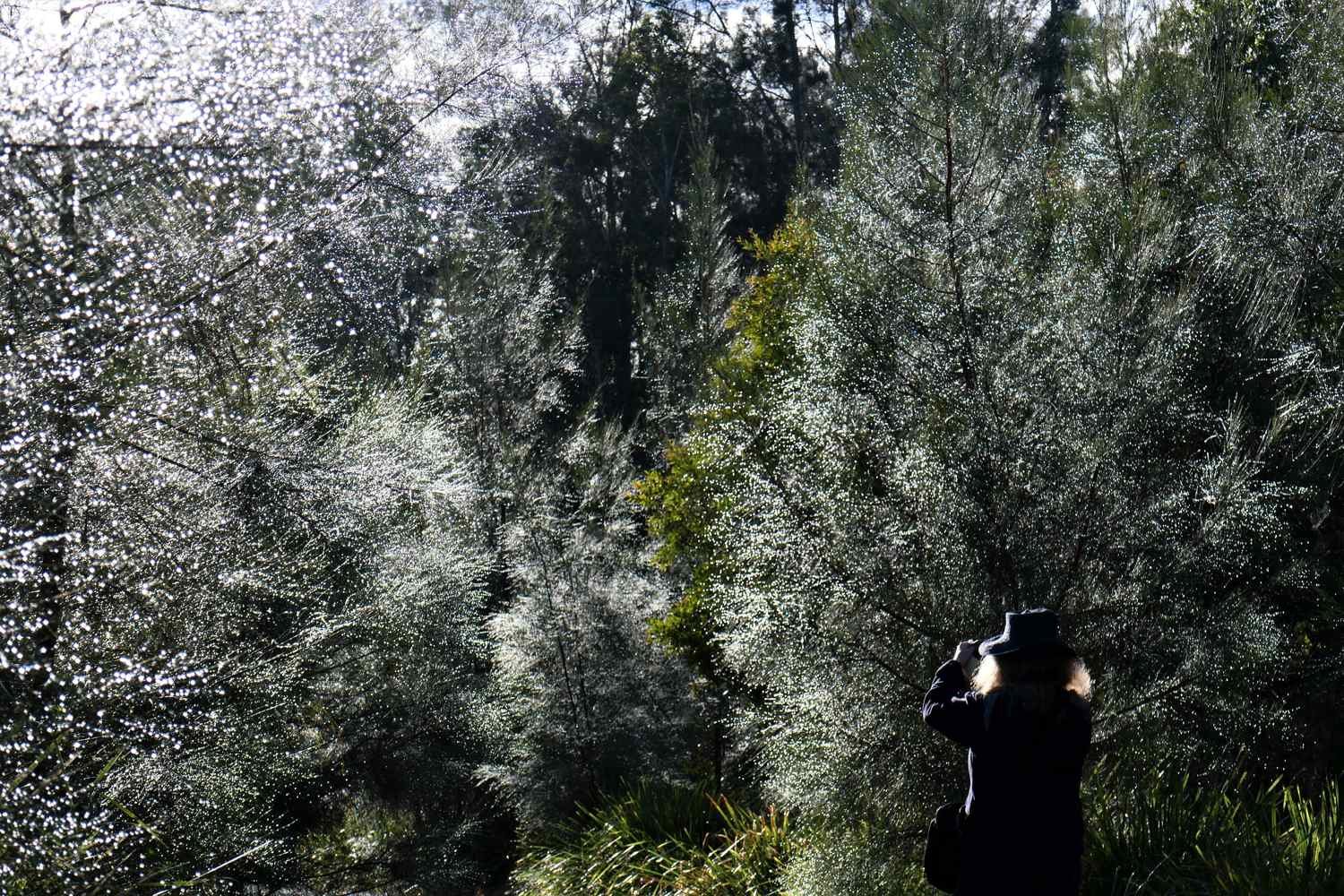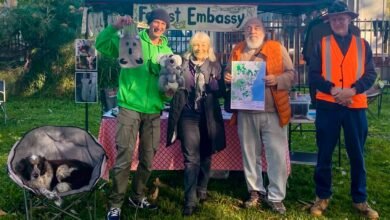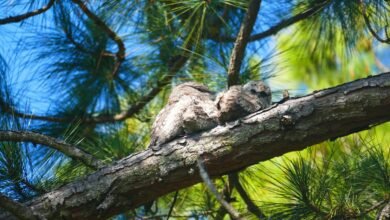9 July, VIRUS 2020
If the COVID-19 virus had a personality ‘it’d be a psychopath with a very high IQ’. SMH
Birdwatching increased tenfold last lockdown. Don’t stop, it’s a huge help for bushfire recovery. The Conversation
‘My life is destroyed’: Sydney father who gambled away $8 million says he was preyed upon. ABC
Brazil’s President Jair Bolsonaro has vetoed provisions of a law that required the federal government to provide drinking water, disinfectants and a guarantee of hospital beds to indigenous communities amid the pandemic. The Guardian
A man who won a bravery award twice and survived the ill-fated Sea Rogue sinking will be sentenced this month for sexually assaulting a woman. Coffs Coast Advocate
Over six months, coronavirus has infected about 12 million people and killed more than half a million people globally. But there are people who still don’t know about COVID‑19. ABC
The mysterious coronavirus can wreak havoc on your health. Medical care for very ill COVID-19 patients is getting better. USA TODAY
As the US set a world record for most Covid-19 cases in one day, with 60,000 reported on Wednesday, Dr Anthony Fauci, a senior member of the White House coronavirus taskforce, said states needed to pause reopening efforts. The Guardian
Hunger could kill millions more than Covid-19, warns Oxfam: Starvation looms from Afghanistan to Haiti as coronavirus restrictions wipe out incomes and cut food supplies. The Guardian
‘Jewel of nature’: scientists fight to save a glittering green bee after the summer fires. The Conversation
Coronavirus outbreaks are not under control in most countries and the pandemic is still accelerating globally, with infections doubling in the past six weeks, the head of the World Health Organization has warned. The Guardian
‘Opioid overdoses are skyrocketing’: as Covid-19 sweeps across US an old epidemic returns: The pandemic is creating the social conditions – no jobs, isolation, despair – that helped enable the opioid crisis to emerge in the first place. Now it’s back. The Guardian
It’s a bit of a shock, Melbourne closed down, the virus still around all corners. For the first time I felt a frisson of anxiety. My father died four years ago, he would have been 96 today. I ring mum, the cleaner has been allowed in – happy days.
I gauge the weather, a heavy dew in the garden. The Bower Creeper has reached our top deck.
 While there’s some sun left we head north for our bird survey, planned for Monday (the forecast awful).
While there’s some sun left we head north for our bird survey, planned for Monday (the forecast awful). The roads here offer views of beauty. I would invite the Reverend Gilpin along were he still with us.
The roads here offer views of beauty. I would invite the Reverend Gilpin along were he still with us.

The old mine site is still pretty quiet.
 The ducks are all clustered near the Black Swan on the nest.
The ducks are all clustered near the Black Swan on the nest.
 The frogs sing a steady chorus.
The frogs sing a steady chorus.
 Spiders are out. Below is a five story web.
Spiders are out. Below is a five story web. Scarlet Honeyeaters are feeding on the flowering paperbarks.
Scarlet Honeyeaters are feeding on the flowering paperbarks. The casuarinas cling to water, a fine brocade of silver thread dresses the paths.
The casuarinas cling to water, a fine brocade of silver thread dresses the paths.
 As we left the wetlands an Eastern Rosella flew over us colours jamming sight – these moments all add up.
As we left the wetlands an Eastern Rosella flew over us colours jamming sight – these moments all add up.
‘They [Eskimos] have a quality of nuannaarpoq, of taking extravagant pleasure in being alive; and they delight in finding it in other people. Facing as we do our various Armageddons, they are a good people to know.’ Barry Lopez Arctic Dreams [1]
Down by the estuary Bar-tailed Godwits and Pelicans are feeding.
 The beauty of world not just visual. We watch Pelicans fishing.
The beauty of world not just visual. We watch Pelicans fishing.
 Two seem very close, almost in courtship. At one time, one seems to feed the other. It is beautiful in an all encompassing way, witnessing animal behaviour on a beautiful winter’s day, the light crystal. And I am with Wyn – beauty mixed with happiness, interest and creativity – hoping to find some decent photographs. Beauty is not disinterested.
Two seem very close, almost in courtship. At one time, one seems to feed the other. It is beautiful in an all encompassing way, witnessing animal behaviour on a beautiful winter’s day, the light crystal. And I am with Wyn – beauty mixed with happiness, interest and creativity – hoping to find some decent photographs. Beauty is not disinterested.
 Stingray mirrors.
Stingray mirrors.
~
Later today I read in today’s Lithub: ‘Beauty, in Ruskin’s analysis, can only result from specific social conditions. It must be produced by skilled workers who are treated not as mere instruments for the ends of others but as creators in their own right and participants in the design of the works they produce. Likewise, it is the duty of the idealists and visionaries to take an active, practical hand in the work of improving the world, not only to guide and instruct but also to participate directly in the construction and completion of the realized product.’ [2]
~
Internet outage. How annoying that now I depend on the internet for this journal.
Back on, browsing, I happen on ‘Award-winning fiction writer Brad Watson dies at 64.’ My age, was it the virus? I Google him, an apparent heart attack at home.
‘I’m juggling a couple of books, trying to make myself commit right now. I’m hoping I can get some good work done this summer.’ But as budget cuts crunched his University of Wyoming creative writing department and the chaotic state of the world over the past three or four years weighed on him, Watson pondered his place. ‘I write every day, but without getting a whole lot of traction. When you go into something big like a novel, you have to be sort of in love with that world, and that vision,’ he said. ‘I have to wonder: Does anyone really care about fiction in this particular time?’[3]
Only the dead see one another, and themselves, for what they truly were, or are. The terrifying idea of time did not apply at all. Brad Watson, from The Heaven of Mercury, Canongate, 2004.
And then I realise I am 65, and that this journal is taking up too much time, and that I am not writing poems, poems take a long time to write.
And so I read the latest Cordite online (96: NO THEME IX). Anthony Lawrence rarely disappoints. His poem ‘Anthropocene’ talks of Corellas as I have in this journal, but he with much more interest in language, than which species. It ends:
I refer to the Corella,
the natural extension
of a word that means
being resultant from something else,
and how corollary
also applies to corally,
given a red tide of coral spawn
on a reef, which in turn
brings four syllables
from where they’ve been
hiding in plain sight
in the Anthropocene.
And I just think of the angelic wings I captured.
~
In 2018 Watters Gallery, one of Australia’s longest-running, most influential and respected commercial galleries, closed its doors after 54 years. Deciding the time was right after the closure of Watters Gallery in 2018, the late Frank Watters OAM (1934-2020) moved to his country home in the Hunter Valley. (The Watters Gift, Art Almanac, 9 July 2020)
I vaguely remember that house as wonderfully idiosyncratic, a tower for the. I didn’t know he had died, hadn’t seen him form before I left Sydney 10 years ago, so many people I have lost touch with in my life, so many new people I have met up here. A loss of seeing examples of contemporary arts practice, of going to see jazz etc.more than made up by natural aesthetics.
In the same issue of the Almanac, a review of a book on Colin McCahon, the wonderful Kiwi artist. I saw his work for the first time at Watters somewhere around the mid-80s. It was opening night, an amazing show, the charge of text and paint on a flat surface hanging on white walls surprising. The artist never appeared. Frank told me McCahon had been too nervous and had just wandered to streets.
~
Be alert – taking the bins out I notice in the gravel of the driveway what looks like a stone mushroom, but orange instead of grey. Not in the field guide, but then there are an estimated quarter of a million fungal species, including around 5,000 mushrooms, and only around 5% described.

[1] Barry Lopez, Arctic Dreams: Imagination and Desire in a Northern Landscape, New York: Bantam Books, 1989,
[2] Kristian Williams The Men Who Brought Political Radicalism to Oscar Wilde: On John Ruskin, William Morris, and the Nascent Anarchism of a Literary Icon’, https://lithub.com/the-men-who-brought-political-radicalism-to-oscar-wilde/ July 9, 2020
[3] https://www.tuscaloosanews.com/news/20200709/award-winning-fiction-writer-brad-watson-dies-at-64



